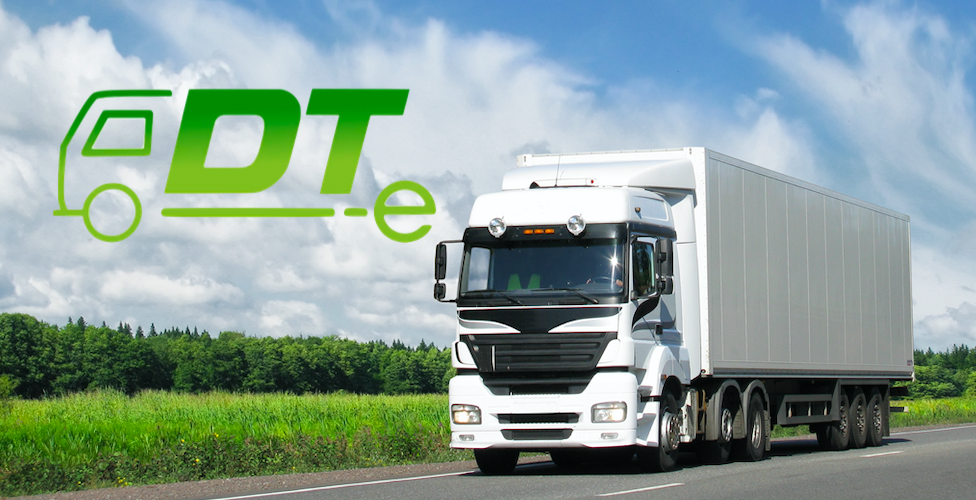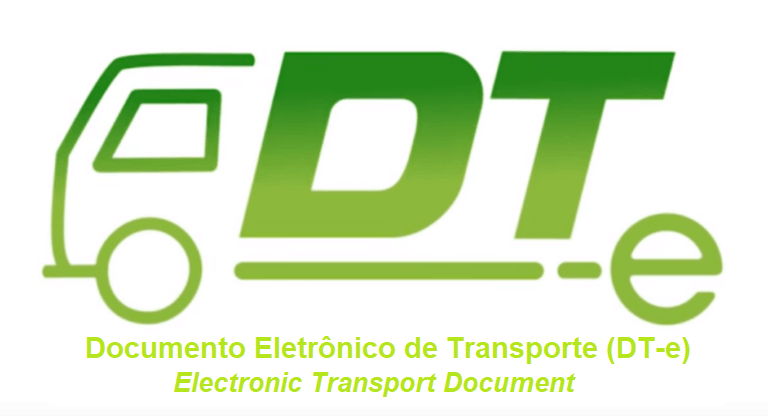
Dengue cases and deaths soar to record levels
read more

Last month, as part of measures to streamline processes and facilitate trade and transport, the federal government launched the Documento Eletrônico de Transporte (electronic transport document), known by the acronym DT-e.
Established by Law 14,206 of 27 September 2021, which is yet to be regulated, the DT-e, as its name suggests, will be issued exclusively in digital format. It will condense a number of mandatory documents, eliminating the need for hauliers to print and bring along any paperwork at any point throughout the logistics chain.
Electronic cargo-related documents of compulsory use, such as e-bills of lading (CT-e) and e-invoices (NF-e & NFS-e), and their respective printed versions, will be incorporated into – but not replaced by – the DT-e. The platform will also include data on cargo insurance, permits and licences granted by intervening authorities and agencies and will keep a log of events that occurred during the rendering of the transport service.
The DT-e is not intended to substitute or eliminate tax and transport documents controlled by states and municipalities. Following its underlying purpose of unifying information, it can be fed with data provided by state and municipal governments upon specific agreements according to the upcoming regulations.
Among some other exemptions, the issuance of a DT-e will not be required for the international transport of cargo or cargo carried within the national territory under customs control.

The Ministry of Infrastructure (MINFRA) estimates that all modes of transport included, the information required by federal authorities and agencies is spread across not less than ninety different documents that stakeholders in the supply chain must issue.
More than a paperless document, the DT-e promises to be a one-stop electronic platform to gather and share information with accredited users (companies, self-employed truck drivers and customers) and public authorities concerned regarding transport services.
Although it applies to all modes of transport, the DT-e is expected to primarily benefit autonomous truck drivers, who will not need to take several printed documents on the truck to be shown to inspectors at checkpoints along the journey.
Among other features, the Federal Land Transport Agency (ANTT) will be able to verify whether the minimum road freight table mandated by the government is being correctly applied. Tax authorities at the three levels of the federation can check the collection of taxes and duties. At the same time, law enforcement agencies will have access to the database for statistical purposes, profiling, and risk assessment.
In the first stage of its rollout, the platform should reduce and consolidate the wide range of documents required for contracting and carrying cargo and passengers in Brazilian cities.
Once fully implemented, the electronic transport document should simplify administrative and bookkeeping processes. Logistic operators, carriers, shippers and sellers of goods moved within the national territory will no longer need to issue, carry along and store printed forms of dozens of documents that have to be generated for each shipment.
Neither the carrier nor the driver will be required to carry or produce any printed document relating to the carrying vehicle, which will be electronically tracked, or the payload.
A unified document, accessible through a mobile application for truck drivers, should help reduce long queues at weighbridges, toll plazas, and interstate tax checkpoints. Today, moving cargo within Brazil involves procedures and bureaucracy that vary from state to state and city to city. The intricate tax framework imposes a heavy administrative burden on actors in the supply chain, raising freight rates and affecting service quality.
The removal of bureaucracy should provide faster collection times and lower costs with the processing, checking and storage of documents.
DT-e should also function as a tool to support the federal administration in formulating, planning, and implementing trade, freight, and logistics policies to promote a swift integration of the various modes of transport and balance the national transport matrix.
The novelty is being received with caution by truck drivers, some of whom perceive the DT-e as just another document that will have to be filled out, though it does not need to be printed like many others.
On the other hand, Brazil has successfully relied on paperless electronic documents to track and collect taxes on sales of goods or services for nearly two decades. Among the main e-documents involved in commercial transactions within the country are:
Although NF-e/NFS-e and CT-e are virtual documents that do not physically exist, their abridged and printed forms, namely Documento Auxiliar de Nota Fiscal Eletrônica – DANFE (auxiliary document of electronic invoice) and Documento Auxiliar de Conhecimento de Transporte Eletrônico – DACTE (auxiliary document of electronic bill of lading), respectively, physically accompany the goods from the seller/shipper’s premises to the buyer/consignee’s premises.
It is likely that, over time, these printed forms will no longer be required to accompany the shipment.
Brazilian electronic invoices and bills of lading follow a precise XML format and must be authenticated with an electronic signature to ensure authenticity and integrity. E-documents must be verified and validated in real-time by the National Secretariat of Finance (SEFAZ).
The DT-e platform will gather and consolidate a multitude of data relating to registration, contractual stipulations, logistics, health, safety, and the environment. In addition to the value of the cargo, insurance and freight, other information will be available to different levels of authority, with strict data protection protocols and tax, commercial and corporate secrecy.

According to MINFRA, there will be hundreds of checkpoints on the main highways across the country with electronic weighbridges capable of reading data from vehicles equipped with chips in motion without the need to interrupt the journey for a physical inspection. The dozens of documents accompanying the truck and cargo should be consolidated into a single paperless document available to truckers and multimodal transport operators through a mobile application.
The system will be gradually implemented for solid bulks, consolidated cargoes, and multimodal. However, there is no firm prediction of exactly when the use of DT-e will come into effect, let alone when it becomes mandatory.
The federal administration is still conducting tests and validations on the system, preparing the necessary regulations, and making the technological resources available to roll out the platform.
Please read our disclaimer.
Related topics:
Rua Barão de Cotegipe, 443 - Sala 610 - 96200-290 - Rio Grande/RS - Brazil
Telephone +55 53 3233 1500
proinde.riogrande@proinde.com.br
Rua Itororó, 3 - 3rd floor
11010-071 - Santos, SP - Brazil
Telephone +55 13 4009 9550
proinde@proinde.com.br
Av. Rio Branco, 45 - sala 2402
20090-003 - Rio de Janeiro, RJ - Brazil
Telephone +55 21 2253 6145
proinde.rio@proinde.com.br
Rua Professor Elpidio Pimentel, 320 sala 401 - 29065-060 – Vitoria, ES – Brazil
Telephone: +55 27 3337 1178
proinde.vitoria@proinde.com.br
Rua Miguel Calmon, 19 - sala 702 - 40015-010 – Salvador, BA – Brazil
Telephone: +55 71 3242 3384
proinde.salvador@proinde.com.br
Av. Visconde de Jequitinhonha, 209 - sala 402 - 51021-190 - Recife, PE - Brazil
Telephone +55 81 3328 6414
proinde.recife@proinde.com.br
Rua Osvaldo Cruz, 01, Sala 1408
60125-150 – Fortaleza-CE – Brazil
Telephone +55 85 3099 4068
proinde.fortaleza@proinde.com.br
Tv. Joaquim Furtado, Quadra 314, Lote 01, Sala 206 - 68447-000 – Barcarena, PA – Brazil
Telephone +55 91 99393 4252
proinde.belem@proinde.com.br
Av. Dr. Theomario Pinto da Costa, 811 - sala 204 - 69050-055 - Manaus, AM - Brazil
Telephone +55 92 3307-0653
proinde.manaus@proinde.com.br
Rua dos Azulões, Sala 111 - Edifício Office Tower - 65075-060 - São Luis, MA - Brazil
Telephone +55 98 99101-2939
proinde.belem@proinde.com.br